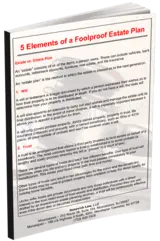Estate planning and establishing trusts to dictate how your assets will be allocated upon your death is necessary to ensure that your beneficiaries will have the resources they need when you are gone. However, as life circumstances change and new situations unfold, you may find that the trust vehicles you have already established no longer match your desires.
While you may change a revocable trust at any time, complications come into play when the trust you seek to change or terminate is classified as an irrevocable trust. Despite its name, state law includes provisions for modifying or even revoking an established irrevocable trust. An experienced Manalapan Township lawyer who is knowledgeable about trust modification and termination guidelines could offer valuable advice to ensure that your assets end up where you wish.
Procedures for Terminating and Modifying Trusts
In general, a trust will be effectively terminated if:
- It expires as per its terms or is revoked
- The purpose of the trust no longer exists
- The purpose of the trust has become illegal
- The purpose of the trust is contrary to public policy in the state
- The purpose of the trust is impossible to achieve
The process by which a person can modify or terminate a trust in Manalapan Township will depend on the specific type of trust in question or the surrounding circumstances. Below are examples of trusts that may be altered after formation.
Noncharitable Irrevocable Trusts
Under state law, with consent of all beneficiaries and the trustee, a noncharitable irrevocable trust may be terminated or changed if the revocation or alteration remains consistent with the trust’s original purpose. Additionally, if all beneficiaries consent, a noncharitable irrevocable trust may be terminated if a court concludes that continuing the trust is no longer necessary to achieve the trust’s material purpose. Upon the termination of a noncharitable irrevocable trust, the trustee will be tasked with distributing the trust property in a manner agreed upon by the beneficiaries. Modifications or terminations that meet these terms do not require any type of court approval.
In the event that not all of the trust’s beneficiaries consent to the termination or modification, a court may still approve the change if it meets the rest of the requirements and if any beneficiaries who did not agree can be adequately compensated.
Unanticipated Circumstances
If unanticipated circumstances arise, a court may modify a trust’s terms if termination or modification will more successfully further the trust’s purposes according to the settlor’s likely intent. The court may also change a trust’s administrative terms if continuing with the existing terms would be wasteful or impractical. If a trust is terminated because of unanticipated circumstances or inability to effectively administer the trust, the trustee is responsible for distributing the trust property to beneficiaries in a way that is consistent with the trust’s purpose.
Uneconomic Trusts
After notifying the beneficiaries, a trustee may terminate a trust holding property valued at less than $100,000 if they conclude that the value does not justify the costs incurred with administering the trust. In this circumstance, the court may terminate or modify the trust or remove the trustee and replace them. If the trust is terminated because it is uneconomic to continue, the trustee is responsible for distributing the assets to the beneficiaries in accordance with the trust’s purpose.
A Manalapan Township Attorney Could Explain the Significance of Trust Modification and Termination
Because a change in life circumstances can impact your wishes regarding asset distribution, it is important to keep your options open when structuring your trusts and estate planning vehicles.
An experienced Manalapan Township lawyer who is knowledgeable about trust modification and termination could help you effectively allocate your assets, even if you need to change the terms of an irrevocable trust. Call today to schedule an initial consultation.

 (856) 439-6223
(856) 439-6223
